Annual Applied Complexity Network and Board of Trustees Symposium: New Complexity Economics Speakers: Difference between revisions
From Santa Fe Institute Events Wiki
No edit summary |
No edit summary |
||
| Line 17: | Line 17: | ||
''Please check back often for updates.'' | ''Please check back often for updates.'' | ||
---- | ---- | ||
<!-- | |||
Hi Tim! Find my comments surrounded by these funky symbols throughout this edit. | |||
Want to jump through them? Try Command + F and search for "<!--" to jump to the start of a comment. | |||
--> | |||
<!-- | |||
Hm, the speaker page gets quite annoying. Each speaker bio is the same though, starting with double "brackets" and ending with "<hr/>". Once again, Copy, paste and modify as needed! | |||
You'll see the first words in a given bio are "File: xxxxx.jpg". That "xxxx.jpg" (or .png, .jpeg, etc.) refer to the "Destination Filename" that's output to you when you follow the "Upload file" link found on the control bar at the left of the screen. (It's under the "Tools" header.) | |||
Think a speaker already has a photo uploaded to the system? Go to Special Pages -> File List -> Search for media name. If you search by last name you may find a good picture already there. Right click on the "Name" and copy it. Then paste is after the colon (with a space) and before that first pipe. Pro Tip! Go to special pages in a new tab and it'll make finding your way back to the edit page easier. | |||
Feel free to upload whichever photos you want. I'm sure at some point there's a limit to the number of images we can store, but that number must be 'UGE. | |||
You'll notice the next feature that requires editing looks something like "[https://www.santafe.edu/people/profile/w-brian-arthur '''W. Brian Arthur''']". This creates a link to whichever URL you specify and displays the bolded text that's given inside the three apostrophes, W. Brain Arthur in this case. Edit it away! After the specified line break (<br/>) you'll see that we bold the speakers affiliations. | |||
Below speaker information lives the text of their bio. This is annoying in its own way! The text is all one block even though there are paragraph breaks. For Media Wiki, it seems to be easiest to provide blocks of text and specify paragraph breaks with two line breaks (<br/><br/>). Look closely and you'll see those double line breaks throughout. | |||
Creating links requires use of the external link formatting: [your.target.url. Text To Display]. Note that there is a space between the URL and the start of the text and that the text may contain spaces. | |||
To bold text, wrap the text in three apostrophes. For italicization, wrap text in two. | |||
The text that's on two lines below the bio starting with "<div style..." and ending with "<hr/>" should be used, across two lines, for each bio. | |||
The general format of Media Wiki is its own weird, stylized HTML markup. Laura for sure knows her way around some HTML and, if you're on your best behavior, may be willing to give you a hand. Alternatively, if you send me an email with names, bios, affiliations, and photos for speakers, I'd be happy to whip up the text document that will be included. | |||
Let me know if you have questions. Happy coding! | |||
--> | |||
==<span style="color:#d15a2a"> Speakers Include:</span>== | ==<span style="color:#d15a2a"> Speakers Include:</span>== | ||
[[File: Brian-Arthur.jpg|thumb|200px|[https://www.santafe.edu/people/profile/w-brian-arthur '''W. Brian Arthur''']<br/>'''PARC and Santa Fe Institute''']] | [[File: Brian-Arthur.jpg|thumb|200px|[https://www.santafe.edu/people/profile/w-brian-arthur '''W. Brian Arthur''']<br/>'''PARC and Santa Fe Institute''']] | ||
Latest revision as of 20:10, 13 February 2020
November 8 - 9, 2019
Santa Fe Institute and Inn at Loretto
Please check back often for updates.
Speakers Include:
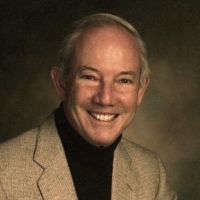
PARC and Santa Fe Institute
W. Brian Arthur is an External Professor at the Santa Fe Institute, and Visiting Researcher in the Systems Sciences Lab at PARC (formerly Xerox Parc) in Palo Alto. Arthur pioneered the modern study of positive feedbacks or increasing returns in the economy--in particular their role in magnifying small, random events in the economy and locking in dominant players. This work has gone on to become the basis of our understanding of the high-tech economy. In 2009 he published the book "The Nature of Technology: What it Is and How it Evolves", an elegant and powerful theory of technology's origins and evolution.
Arthur is also one of the pioneers of the science of complexity. His association with the Santa Fe Institute goes back to 1987. He is a member of SFI's Founders Society, and in 1988 directed its first research program—work that has subsequently become the basis for Complexity Economics. He has served many years on SFI's Science Board and Board of Trustees. From 1983 to 1996 Arthur was Morrison Professor of Economics and Population Studies at Stanford University, at the time of appointment the youngest endowed professor at Stanford.
Brian Arthur is the recipient of the Schumpeter Prize in economics, the Lagrange Prize in complexity science, and two honorary doctorates. He earned his Ph.D. from Berkeley in Operations Research and has other degrees in economics, electrical engineering, and mathematics.
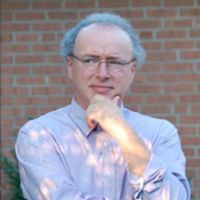
George Mason University and Santa Fe Institute
Rob Axtell is a Professor at George Mason University and External Professor at Santa Fe Institute. He works at the intersection of economics, behavioral game theory, and multi-agent systems computer science. His most recent research attempts to emerge a macroeconomy from tens of millions of interacting agents. He is Department Chair of the new Department of Computational Social Science at George Mason University (Fairfax, Virginia, USA). He teaches courses on agent-based modeling, mathematical modeling, and game theory. His research has been published in "Science," "Proceedings of the National Academy of Sciences USA," and leading field journals. Popular accounts have appeared in newspapers, magazines, books, online, on the radio and in museums. His is the developer of Sugarscape, an early attempt to do social science with multi-agent systems, andco-author of "Growing Artificial Societies: Social Science from the Bottom Up" (MIT Press 1996). Previously, he was a Senior Fellow at the Brookings Institution (Washington, D.C. USA) and a founding member of the Center on Social and Economic Dynamics there. He holds an interdisciplinary Ph.D. from Carnegie Mellon University (Pittsburgh, USA).

University of Oxford and Santa Fe Institute
Eric Beinhocker is a Professor of Public Policy Practice at the Blavatnik School of Government, University of Oxford, the Executive Director of the Institute for New Economic Thinking at the University’s Oxford Martin School, and External Professor at Santa Fe Institute. INET Oxford is a research center devoted to applying leading-edge interdisciplinary approaches to issues including financial system stability, innovation and growth, economic inequality, and environmental sustainability. Beinhocker is also a Supernumerary Fellow in Economics at Oriel College and a Visiting Professor of Economics and Public Policy at Central European University in Budapest.
Prior to joining Oxford, Beinhocker had an 18-year career at McKinsey & Company where he was a partner and held leadership roles in McKinsey’s Strategy Practice, its Climate Change and Sustainability Practice, and the McKinsey Global Institute. Beinhocker writes frequently on economic, business, and public policy issues and his work has appeared in the Financial Times, Bloomberg, The Times, the Guardian, The Atlantic, Newsweek, Democracy, and he is the author The Origin of Wealth: The Radical Remaking of Economics and What It Means for Business and Society. Beinhocker is a graduate of Dartmouth College and the MIT Sloan School, and is originally from Boston, Massachusetts.
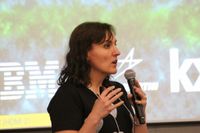
University of Central Florida and Blue Marble Space Institute of Science
Anamaria Berea is a Visiting Research Assistant Professor at the University of Central Florida and a Blue Marble Space Institute of Science research scientist. She holds a PhD in economics from the Bucharest Academy of Economic Studies (2010) and one in computational social science from George Mason University (2012). Her current research is focused on the emergence of communication in biological and social networks. She applies theories and methods from economics, complex systems and information theory to understand fundamental patterns of communication in both living and non-living systems. She is an interdisciplinary scientist and uses a wide range of computational and data science methods (agent-based modeling, network analysis, natural language processing techniques, Bayesian networks, and other machine learning).
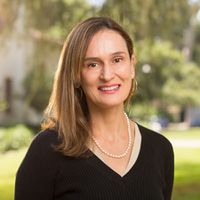
Claremont Graduate University
C. Mónica Capra is a professor in the Department of Economic Sciences at Claremont Graduate University. Her areas of expertise are experimental economics, behavioral economics, and neuroeconomics. Professor Capra is interested in decision processes. Her contributions in behavioral game theory include the explicit modeling of introspection with error and the study of the effects of mood on decisions. She is also interested in the role personality plays in shaping economic choices. Capra has made transdisciplinary studies an important component of her work, and has collaborated with data scientists, neuroscientists, and psychologists. This collaboration has led to important contributions in behavioral economics. Capra is a graduate of Franklin & Marshall College and earned her Ph.D. in Economics from the University of Virginia.
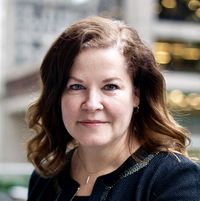
Putnam Investments and Santa Fe Institute
Katherine Collins is Head of Sustainable Investing at Putnam Investments and Portfolio Manager for Putnam’s Sustainable Leaders and Sustainable Future strategies, with over $5 billion in assets under management. She also serves as Vice Chair of the Santa Fe Institute Board of Trustees.
A recognized thought leader, Ms. Collins is the author of The Nature of Investing and founder of Honeybee Capital, an independent investment research firm focused on sustainable investment themes. Earlier in her career, she served as Head of Equity Research, Portfolio Manager, and Equity Research Analyst at Fidelity Investments.
Katherine serves on numerous boards, including Last Mile Health, Omega Institute, and Harvard Divinity School Dean’s Council. She earned a Master of Theological Studies from Harvard Divinity School and a B.A. from Wellesley College, and is a CFA charter holder. Her closest neighbors in Massachusetts are thousands of honeybees.
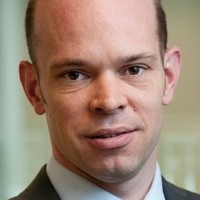
The Wall Street Journal
Paul Davies is a Senior Markets Reporter for The Wall Street Journal in London.
He previously wrote about banking and finance for Heard on the Street in London for 5 years. Before that he spent 14 years at the Financial Times in roles including Asia finance correspondent based in Hong Kong, insurance correspondent based in London and deputy capital markets editor covering credit and securitization markets throughout the financial crisis.
He is @PaulJDavies on Twitter.
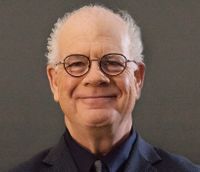
New York University and Santa Fe Institute
Joshua Epstein is Professor of Epidemiology in the NYU College of Global Public Health, founding Director of the NYU Agent-Based Modeling Laboratory, with affiliated appointments at The Courant Institute of Mathematical Sciences, and the College of Arts & Sciences, and External Professor at Santa Fe Institute. Prior to joining NYU, he was Professor of Emergency Medicine at Johns Hopkins, and Director of the Center for Advanced Modeling in the Social, Behavior, and Health Sciences, with Joint appointments in Economics, Applied Mathematics, International Health, and Biostatistics. Before that, he was Senior Fellow in Economic Studies at the Brookings Institution and Director of the Center on Social and Economic Dynamics. His research interest has been modeling complex social dynamics using mathematical and computational methods, notably the method of Agent-Based Modeling in which he is a recognized pioneer. For this transformative innovation, he was awarded the NIH Director’s Pioneer Award in 2008, an Honorary Doctorate of Science from Amherst College in 2010, and was elected to the Society of Sigma XI in 2018. He has applied this method to the study of infectious diseases (e.g., Ebola, pandemic influenza, and smallpox), vector-borne diseases (e.g., zika), urban disaster preparedness, contagious violence, the evolution of norms, economic dynamics, computational archaeology, and the emergence of social classes, among many other topics. His books include Nonlinear Dynamics, Mathematical Biology, and Social Science (Wiley 1997), Generative Social Science: Studies in Agent-Based Computational Modeling (Princeton, 2006), Agent_Zero: Toward Neurocognitive Foundations for Generative Social Science (Princeton, 2013), and with Robert Axtell, Growing Artificial Societies: Social Science from the Bottom Up (MIT, 1996). Dr. Epstein earned his BA from Amherst College and his Ph.D. from The Massachusetts Institute of Technology.
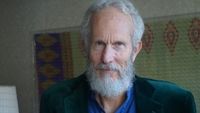
Oxford/INET and Santa Fe Institute
J. Doyne Farmer is Director of Complexity Economics at the Institute for New Economic Thinking at the Oxford Martin School, and is the Baillie Gifford Professor at Mathematical Institute at the University of Oxford, as well as an External Professor at Santa Fe Institute. His current research is in economics, including financial stability, sustainability, technological change and economic simulation. He was a founder of Prediction Company, a quantitative automated trading firm that was sold to the United Bank of Switzerland in 2006. His past research spans complex systems, dynamical systems, time series analysis and theoretical biology. He founded the Complex Systems Group at Los Alamos National Laboratory, and while a graduate student in the 70’s he build the first wearable digital computer, which was successfully used to predict the game of roulette.

Santa Fe Institute
Jessica Flack is a professor at the Santa Fe Institute and director of SFI's Computation Group(C4). Research in C4 draws on evolutionary theory, cognitive neuroscience and behavior, statistical mechanics, information theory, dynamical systems and theoretical computer science to study the roles of information processing and collective computation in the emergence of robust structure and function in biological and social systems. Goals include identifying the computational principles that allow nature to overcome subjectivity due to information processing to produce ordered states and understanding why adaptive systems typically have many space and timescales. A central idea is noisy information processors construct their macroscopic worlds through collective coarse-graining in evolutionary and/or learning time. In other words, how the appropriate aggregation of information from individuals making decisions under uncertainty can produce good collective forecasts. Flack was previously founding director of University of Wisconsin-Madison's Center for Complexity and Collective Computation in the Wisconsin Institutes for Discovery. Flack's work has been covered by scientists and science journalists in many publications and media outlets, including the BBC, NPR, Nature, Science, The Economist, New Scientist, Current Biology, The Atlantic, and Quanta Magazine.
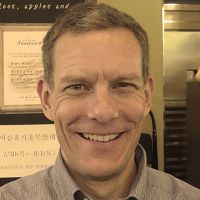
Stanford University and Santa Fe Institute
Matthew O. Jackson is the William D. Eberle Professor of Economics at Stanford University, External Professor at Santa Fe Institute where he is on the Science Board, and a senior fellow of CIFAR. He was at Northwestern University and Caltech before joining Stanford, and received his BA from Princeton University in 1984 and PhD from Stanford in 1988. Jackson's research interests include game theory, microeconomic theory, and the study of social and economic networks, on which he has published many articles and the books The Human Network and Social and Economic Networks. He also teaches an online course on networks and co-teaches two others on game theory. Jackson is a Member of the National Academy of Sciences, a Fellow of the American Academy of Arts and Sciences, a Fellow of the Econometric Society, a Game Theory Society Fellow, and an Economic Theory Fellow, and his other honors include the von Neumann Award, a Guggenheim Fellowship, the Social Choice and Welfare Prize, the B.E.Press Arrow Prize for Senior Economists, and teaching awards.
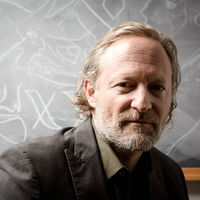
Santa Fe Institute
David Krakauer is the President and William H. Miller Professor of Complex Systems at the Santa Fe Institute. His research explores the evolution of intelligence on earth. This includes studying the evolution of genetic, neural, linguistic, social and cultural mechanisms supporting memory and information processing, and exploring their shared properties. He served as the founding Director of the Wisconsin Institute for Discovery, the Co-Director of the Center for Complexity and Collective Computation, and Professor of mathematical genetics all at the University of Wisconsin, Madison. David has been a visiting fellow at the Genomics Frontiers Institute at the University of Pennsylvania, a Sage Fellow at the Sage Center for the Study of the Mind at the University of Santa Barbara, a long-term Fellow of the Institute for Advanced Study in Princeton, and visiting Professor of Evolution at Princeton University. In 2012 Dr. Krakauer was included in the Wired Magazine Smart List as one of 50 people "who will change the World.” In 2016 Krakauer was included in Entrepreneur Magazine’s visionary Leaders advancing global research and business.
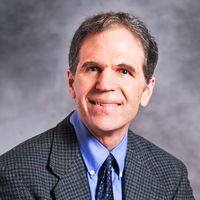
Brandeis University
Blake LeBaron is the Abram L. and Thelma Sachar Chair of International Economics at the International Business School, Brandeis University. LeBaron was at the University of Wisconsin from 1988-1998, and also served as director of the Economics Program at the Santa Fe Institute in 1993. He was a Sloan Fellow, and is a recent recipient of the Market Technicians Association Mike Epstein award. He recently spent two years as a visiting researcher with the Office of Financial Research in the U.S. Treasury Department. He currently directs the Masters of Science in Business Analytics program at Brandeis, and is part of a Brandeis interdisciplinary research and teaching group interested in modeling dynamics in a wide range of fields. LeBaron’s research has concentrated on the issue of nonlinear behavior of financial and macroeconomic time series. He has been influential both in the statistical detection of nonlinearities and in describing their qualitative behavior in many series. LeBaron’s current interests are in understanding the quantitative dynamics of interacting systems of adaptive agents and how these systems replicate observed real world phenomenon. Also, LeBaron is interested in understanding some of the observed behavioral characteristics of traders in financial markets.
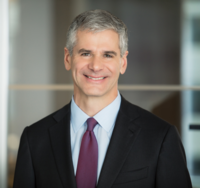
BlueMountain Capital Management and Santa Fe Institute
Michael Mauboussin is Director of Research at BlueMountain Capital Management in New York and chairman of the board of trustees at the Santa Fe Institute. Prior to joining BlueMountain in July of 2017, he was a Managing Director and Head of Global Financial Strategies at Credit Suisse. Before rejoining Credit Suisse, he was Chief Investment Strategist at Legg Mason Capital Management from 2004-2012. Mr. Mauboussin joined Credit Suisse in 1992 as a packaged food industry analyst and was named Chief U.S. Investment Strategist in 1999.
Mr. Mauboussin is the author of three books, including The Success Equation: Untangling Skill and Luck in Business, Sports, and Investing and is also co-author, with Alfred Rappaport, of Expectations Investing: Reading Stock Prices for Better Returns.
Mr. Mauboussin has been an adjunct professor of finance at Columbia Business School since 1993 and is on the faculty of the Heilbrunn Center for Graham and Dodd Investing. He earned an A.B. from Georgetown University.

Miller Value Partners and Santa Fe Institute
Bill Miller is the Chairman and Chief Investment Officer of Miller Value Partners, LLC, the Portfolio Manager for MVP1, LP and Life Trustee and Chairman Emeritus of Santa Fe Institute. During his tenure as sole manager of the Legg Mason Value Trust, its performance exceeded its S&P 500 benchmark index for 15 consecutive years.† He was named Fund Manager of the Year in 1998 by Morningstar,‡ The Greatest Money Manager of the 1990s by Money Magazine, selected as Fund Manager of the Decade by Morningstar.com, was named by Barron’s to its All-Century Investment Team (1999), and received the Sauren Golden Award in 2015.
Bill was the director of research for Legg Mason from October 1981 through June 1985, and assumed overall responsibility for Legg Mason’s equity funds management division in 1990. Prior to joining Legg Mason in 1981, he served as treasurer of the JE Baker Company, a major manufacturer of products for the steel and cement industries.
Bill earned his economics degree from Washington and Lee University where he graduated with honors in 1972. Subsequent to graduation, he served as a military intelligence officer overseas and then pursued graduate studies in philosophy in the PhD program at The Johns Hopkins University. He received his CFA designation in 1986. Mr. Miller is Chairman Emeritus of the Board of Trustees of the Santa Fe Institute where he served as chairman from 2005 to 2009. The Santa Fe Institute is one of the world’s leading scientific research laboratories, conducting multidisciplinary research in complex systems theory.
A long-time supporter of the Santa Fe Institute, Bill established the Miller Omega Fund in 2016.
† Legg Mason Value Trust-Class C beat the S&P 500 on an annual basis from 1990-2005. Bill Miller no longer manages the fund.
‡ Morningstar’s Award for “Domestic Equity Fund Manager of the Year 1988” recognizes portfolio managers who demonstrate excellent investment skill, the courage to differ from consensus, and the commitment to shareholders necessary to deliver outstanding long-term performance.
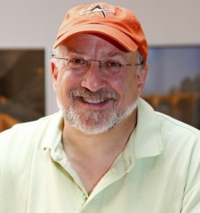
Carnegie Mellon University and Santa Fe Institute
John Miller is Professor of Economics and Social Science at Carnegie Mellon and an External Professor at the Santa Fe Institute (and chair of the Institute’s Science Steering Committee). His research focuses on the complex adaptive behavior that emerges in social systems. The goal of this work is to understand the principles by which aggregate patterns emerge from the interactions of adaptive agents. To explore such questions he relies on computational and mathematical models, as well as the occasional human experiment.
His books on complex systems include A Crude Look at the Whole (Basic Books) and Complex Adaptive Social Systems (with Scotte Page, Princeton University Press).

Portland State University and Santa Fe Institute
Melanie Mitchell is Professor of Computer Science at Portland State University, and External Professor and Co-Chair of the Science Board at the Santa Fe Institute. She attended Brown University, where she majored in mathematics and did research in astronomy, and the University of Michigan, where she received a Ph.D. in computer science. Her dissertation, in collaboration with her advisor Douglas Hofstadter, was the development of Copycat, a computer program that makes analogies.
Mitchell has held faculty or professional positions at the University of Michigan, the Santa Fe Institute, Los Alamos National Laboratory, the OGI School of Science and Engineering, and Portland State University. She is the author or editor of six books and numerous scholarly papers in the fields of artificial intelligence, cognitive science, and complex systems, including Complexity: A Guided Tour (Oxford, 2009), which won the 2010 Phi Beta Kappa Science Book Award. Her newest book is Artificial Intelligence: A Guide for Thinking Humans (Farrar, Straus, and Giroux, 2019).
Mitchell originated the Santa Fe Institute's Complexity Explorer project, which offers online courses and other educational resources related to the field of complex systems.
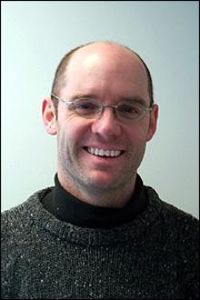
University of Michigan and Santa Fe Institute
Scott Page is the Leonid Hurwicz Collegiate Professor of Complex Systems Political Science, and Economics at the University of Michigan, where he also directs the Center for the Study of Complex Systems, and External Professor at Santa Fe Institute. In 2011, he was elected to the American Academy of Arts and Sciences. His research focuses on the myriad roles that diversity plays in complex systems. Dr. Page received his Ph.D. in Managerial Economics & Decisions Sciences from Northwestern University.
He has written five books, including The Model Thinker - What you need to know to make data work for you, Complex Adaptive Social Systems (with John Miller), and, most recently, Diversity and Complexity, which explores the contributions of diveristy within complex systems.
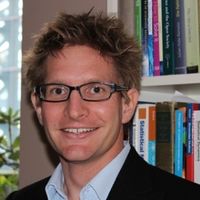
London Mathematical Laboratory and Santa Fe Institute
Ole Peters is a Fellow at the London Mathematical Laboratory, the Principal Investigator of its ergodicity economics program, and an External Professor at Santa Fe Institute. He works on different conceptualizations of randomness in the context of economics. His thesis is that the mathematical techniques adopted by economics in the 17th and 18th centuries are at the heart of many problems besetting the modern theory. Using a view of randomness developed largely in the 20th century he has proposed an alternative solution to the discipline-defining problem of evaluating risky propositions. This provides a novel interpretation of expected utility theory and implies solutions to the 300-year-old St. Petersburg paradox, the leverage optimization problem, the equity premium puzzle, and the insurance puzzle. It leads to deep insights into the origin of cooperation, intertemporal discounting, and the dynamics of economic inequality. You can find him on twitter under @ole_b_peters, and he maintains a popular blog that also hosts the ergodicity economics lecture notes.

Stanford University and Santa Fe Institute
Walter W. Powell is Jacks Family Professor of Education, and Professor of Sociology, Organizational Behavior, Management Science and Engineering, and Communication at Stanford University, and a faculty fellow at the Center for Advanced Study in the Behavioral Sciences. He was a founding co-director of the Stanford Center on Philanthropy and Civil Society in 2006, and currently shares the Marc and Laura Andreessen Co-Directorship with Rob Reich and Robb Willer. At PACS, he heads the Civic Life of Cities Lab, which studies civil society organizations in the SF Bay Area, Seattle, Shenzhen, Sydney, Taipei, and Vienna. Woody was the 2018 -19 recipient of the Dean's Award for Excellence in Graduate Teaching in the School of Humanities and Sciences. Prior to moving to Stanford in 1999, he taught at Yale, MIT, and the University of Arizona. He has received honorary degrees from Uppsala University, Copenhagen Business School, and Aalto University, and is a foreign member of the Swedish Royal Academy of Science. He served as an external faculty member of the Santa Fe Institute from 2001-13, and continues his involvement with SFI today. His most recent books include The Emergence of Organizations and Markets, with John F. Padgett (Princeton University Press) and The Nonprofit Sector, co-edited with Patricia Bromley (forthcoming from Stanford University Press). His research interests focus on the processes through which ideas and practices are transferred across organizations, and the role of networks in facilitating or hindering innovation.
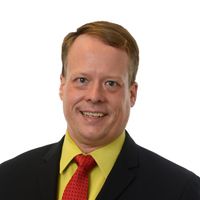
North Carolina State University
William Rand is Associate Professor of Marketing in the Department of Business Management at North Carolina State University. He examines the use of computational modeling techniques, such as agent-based modeling, machine learning, network analysis, natural language processing, and geographic information systems, to help understand and analyze complex systems, such as the diffusion of information, organizational learning, and economic markets.
He also works to develop methods, create pedagogy, and build frameworks to allow researchers and practitioners to use analytics and data-intensive methods in their own work.
He has received funding for his research from the NSF, DARPA, ARL, Google, WPP, and the Marketing Science Institute. His work has been published in JM, JMR, IJRM, Management Science, and JOM.
He received his doctorate in Computer Science from the University of Michigan in 2005 and prior to coming to NC State was at the University of Maryland for eight years.
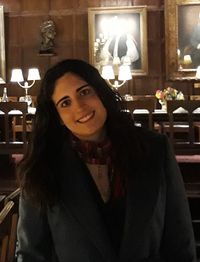
Oxford/INET
Maria del Rio-Chanona is a Mathematics DPhil student supervised by Doyne Farmer at the University of Oxford. Before starting her PhD, Maria did her BSc in Physics at Universidad Nacional Autónoma de México (UNAM) 2011-2016, was a research intern at Imperial College London and Ryerson University and worked as a data scientists for two consulting firms (Inno-ba and Pondera). Maria’s research interests are broad. The main work of her PhD thesis focuses on developing a data-driven network model of the labour market to understand the impact of automation on employment. Additionally, Maria has worked on alternative methods to assess forecasts for renewable energy generation and has studied shock propagation in networks. In particular, Maria was a research intern at the International Monetary Fund, where she studied global financial contagion in multilayer network. In general, Maria’s research focuses on complexity economics, networks and shock propagation, agent-based models, and the future of work.

Columbia University and Santa Fe Institute
Rajiv Sethi is a Professor of Economics at Barnard College, Columbia University and an External Professor at Santa Fe Institute. He has previously held visiting positions at Microsoft Research and at the Institute for Advanced Study in Princeton. He is on the editorial boards of the American Economic Review and Economics and Philosophy.
His current research deals with information and beliefs. In collaboration with Brendan O’Flaherty, he has examined the manner in which stereotypes affect interactions among strangers, especially in relation to crime and the criminal justice system. Their book, Shadows of Doubt: Stereotypes, Crime, and the Pursuit of Justice was published by Harvard University Press in 2019.
Rajiv is also currently working on the forecasting of geopolitical events using methods that combine machine models with human judgment. This involves the development of prediction markets in which trading bots representing machine models interact with human traders to generate hybrid forecasts.
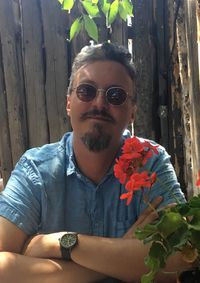
Carnegie Mellon University and Santa Fe Institute
Cosma Shalizi is Professor at Carnegie Mellon University, where he holds joint positions in the departments of Statistics and of Machine Learning, and co-directs the Ph.D. program in machine learning, and External Professor at Santa Fe Institute. He studies methods of statistical inference for complex systems. After doing his Ph.D. on the statistical mechanics of self-organization at the University of Wisconsin and SFI, he was a post-doc at the University of Michigan's Center for the Study of Complex Systems, and has been at Carnegie Mellon University since 2005. He has worked extensively on complexity measures, self-organization, cellular automata, prediction and filtering of time series and of spatio-temporal data, heavy-tailed distributions, social network analysis, information flow in neural systems, causal inference from observational data, and collaborative problem solving. He still blogs sporadically at http://bactra.org/weblog/.

Harvard University and Santa Fe Institute
Allison Stanger is the Russell Leng ’60 Professor of International Politics and Economics at Middlebury College, Technology and Human Values Senior Fellow at Harvard University’s Edmund J. Safra Center for Ethics, New America Cybersecurity Fellow, and an External Professor at the Santa Fe Institute. She is the author of Whistleblowers: Honesty in America from Washington to Trump and One Nation Under Contract: The Outsourcing of American Power and the Future of Foreign Policy, both with Yale University Press. She is working on a new book tentatively titled Consumers versus Citizens: Social Inequality and Democracy in a Big Data World. Stanger’s writing has appeared in Foreign Affairs, Foreign Policy, Financial Times, International Herald Tribune, New York Times, USA Today, U.S. News and World Report, and The Washington Post, and she has testified before the Commission on Wartime Contracting, the Senate Budget Committee, the Congressional Oversight Panel, the Senate HELP Committee, and the House Committee on Government Oversight and Reform. She is a member of the Council on Foreign Relations and received her Ph.D. in Political Science from Harvard University.

Duality Group
Dario Villani is CEO and Co-Founder of Duality Group. Dario has managed multi-billion dollar portfolios within credit, interest rates, and commodities. Previously, he served as Global Head of Portfolio Strategy and Risk at Tudor Investment Corporation. He shared the 2016 Risk.net Buy-Side Quant of the Year Award, and has authored research papers in finance, theoretical physics, statistics and portfolio management. Dario holds a Ph.D. in Theoretical Physics from Salerno University and a Master in Finance from Princeton University where he also taught a popular course in trading and risk management.
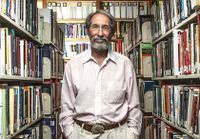
Santa Fe Institute
Geoffrey West is the Shannan Distinguished Professor and former President of the Santa Fe Institute and Associate Senior Fellow of Oxford University’s Green-Templeton College. His BA is from Cambridge and his PhD from Stanford, where he later returned to join the faculty. West is a theoretical physicist whose primary interests have been in fundamental questions ranging from the elementary particles and their cosmological implications to universal scaling laws in biology and a quantitative science of cities, companies and global sustainability. His work is motivated by the search for “simplicity underlying complexity.” His research includes metabolism, growth, aging and lifespan, sleep, cancer and ecosystems, the dynamics of cities and companies, rates of growth and innovation, and the accelerating pace of life.
West has given many lectures world-wide including Davos and TED. Among his awards are the Mercer Prize from the Ecological Society of America, the Weldon Prize for Mathematical Biology, the Glenn Award for Aging Research and the Szilard Award from the American Physical Society. He has been featured in many publications world-wide including the New York Times, Financial Times, Wired, Time, The Economist, Nature and Science and participated in television productions including Nova, National Geographic and BBC. He is the author of the best-selling book Scale. His public service includes serving on the Council of the World Economic Forum. His work was selected as a breakthrough idea by the Harvard Business Review in 2006 and he was on Time magazine’s list of “100 Most Influential People in the World” in 2007.
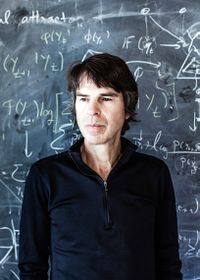
Santa Fe Institute
David Wolpert is a Professor at Santa Fe Institute. He is an IEEE fellow, is the author of three books and more than 200 papers, has three patents, is an associate editor at more than half a dozen journals, and has received numerous awards. He has more than 23,000 citations in a wide range of fields, including physics, machine learning, game theory, information theory, the thermodynamics of computation, and distributed optimization. In particular, his machine learning technique of stacking was instrumental in both winning entries for the Netflix competition, and his papers on the no free lunch theorems jointly have more than 7,000 citations.
He is a world expert on using nonequilibrium statistical physics to analyze the thermodynamics of computing systems; extending game theory to model humans operating in complex engineered systems; exploiting machine learning to improve optimization; and Monte Carlo methods.
Previously he was the Ulam Scholar at the Center for Nonlinear Studies at Los Alamos National Laboratory, and before that he was at the NASA Ames Research Center and was a consulting professor at Stanford University, where he formed the Collective Intelligence Group. He has worked at IBM and at a data mining startup, and he is external faculty at numerous international institutions. His degrees in physics are from Princeton University and the University of California.

